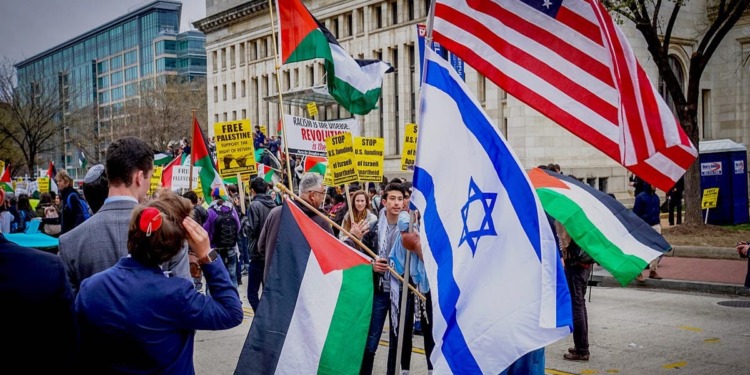About a decade ago I visited a British writer who lived in a pleasant house a few miles outside London. On a living room piano stood a photograph of an old lady in a loose dark dress with long sleeves. She had a crown of short grey curls and very sad eyes. She didn’t look in the least like my host who seemed to spend all the hours he wasn’t writing at the gym. “My grandmother,” he said. “Maybe three decades after her release from Auschwitz and the only Jew in our family. The long sleeve on the left side covered up her prisoner’s tattoo.”
Surprised, I asked my host if he ever felt Jewish.
“Not at all,” he replied. “But I do have to wonder, and quite often, why Israel is the only country on earth that is regularly and consistently expected by the rest of the world to commit suicide.”
Auschwitz — it was difficult to connect the strong healthy man before me with a memory of mass murder.
Of late, I think about that remark often enough. Though, to be clear, until very recently I had never thought about it. Then came October 7th: 1200 Israeli civilians murdered, children beheaded, whole families in safe rooms burnt to death, women gang-raped and then murdered, old women and babies turned at gunpoint into captives — and a close friend sent me this email, meant somehow, I am certain, to be consoling:
“Perhaps a two-state solution will come out of all this.”
I practically dropped my cell phone. The good news? My friend was hopeful. The bad news? 1400 Israeli noncombatants massacred; 230 captured; untold numbers savagely raped.
Still, one could argue — that was all in Israel.
Then some weeks later, my backyard got invaded.
At Columbia University, where I received many years ago a master’s in journalism, a 19-year-old was charged with a hate crime after beating with a stick a student putting up a poster of an Israeli hostage held by Hamas; then a swastika was found drawn in a bathroom.
At the University of Pennsylvania, students complained that certain professors have made antisemitic statements in class as well as on social media.
At Wellesley College, some dorm advisors sent a mass email to students declaring “There should be no space, no consideration, and no support for Zionism.”
At Cornell, a fraternity website told students to “shoot up” the university’s kosher dining room and, for good measure, to kill and rape Jewish students.
At Harvard, a well-known professor was never publicly reprimanded for his “anti-semitic and anti-Israel bias,” according to the Brandeis Center, and an explosive student group letter blamed Israel entirely for the attacks.
Meanwhile, in France, Interior Minister Gerard Darmanin informed the rest of the world that the number of antisemitic attacks has “exploded,” with 486 arrested.
In the United Kingdom, a 1350% rise in antisemitic hate crimes against Jews. As for the ever-reliable BBC: it consistently and adamantly refused to describe Hamas, the author and perpetrator of the October 7th massacre, as a terrorist organization until October 22nd, when it finally decided that perhaps the word “militants” wasn’t quite adequate to describe mass murderers.
So here we are once again. Auschwitz these days is a tourist site and grandmothers who wore its devastation and agony on their arms are long gone. But not everything had disappeared. A fair number of people worldwide — and a nation — are still expected to commit suicide.
Editor’s Note: The opinions expressed here by the authors are their own, not those of Impakter.com — Featured Photo Credit: flags of Israel and Palestine. Source: Ethnic Media Coverage, Creator: Ted Eytan Copyright: Ted Eytan ((CC license).










